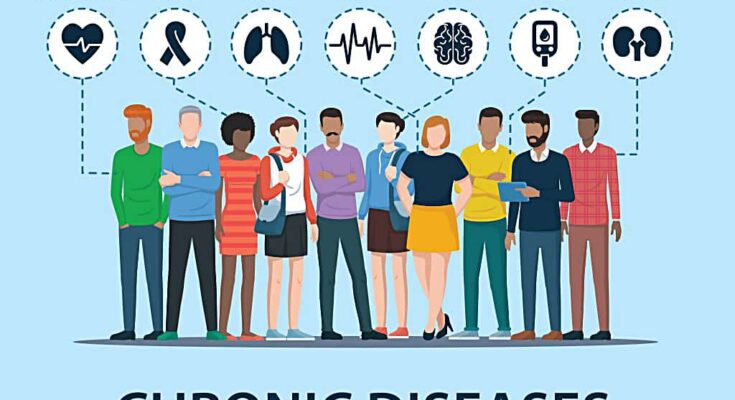Chronic diseases, also known as non-communicable diseases, are long-term conditions that can have significant impacts on a person’s health and quality of life. Some of the most common chronic diseases include diabetes, hypertension, and heart disease. Here’s a closer look at these conditions and how they can be managed.
Diabetes
Diabetes is a chronic disease that affects how the body processes blood sugar, also known as glucose. There are two main types of diabetes: type 1 and type 2. Type 1 diabetes is an autoimmune disease where the body does not produce insulin, while type 2 diabetes occurs when the body cannot use insulin effectively.
Managing diabetes involves regular monitoring of blood sugar levels, making healthy lifestyle choices, and sometimes taking medication. Here are some tips for managing diabetes:
- Monitor blood sugar levels: Regular monitoring of blood sugar levels can help people with diabetes stay on top of their condition.
- Eat a healthy diet: Eating a healthy diet, low in carbohydrates and sugar, can help manage blood sugar levels.
- Exercise regularly: Exercise can help manage blood sugar levels and improve overall health.
- Take medication as prescribed: Medication, such as insulin or oral medications, may be necessary to manage blood sugar levels.
Hypertension
Hypertension, or high blood pressure, is a condition where the force of blood against the walls of arteries is consistently high. High blood pressure can lead to serious health complications, such as heart disease and stroke. Managing hypertension involves lifestyle changes and sometimes medication. Here are some tips for managing hypertension:
- Monitor blood pressure regularly: Regular monitoring of blood pressure levels can help people with hypertension stay on top of their condition.
- Eat a healthy diet: Eating a healthy diet, low in sodium and high in fruits and vegetables, can help manage blood pressure.
- Exercise regularly: Exercise can help manage blood pressure levels and improve overall health.
- Take medication as prescribed: Medication, such as diuretics or beta-blockers, may be necessary to manage blood pressure.
Heart Disease
Heart disease refers to a range of conditions that affect the heart, such as coronary artery disease, heart failure, and arrhythmias. Managing heart disease involves lifestyle changes, medication, and sometimes surgery. Here are some tips for managing heart disease:
- Eat a heart-healthy diet: Eating a heart-healthy diet, low in saturated and trans fats, can help manage heart disease.
- Exercise regularly: Exercise can help improve heart health and overall health.
- Take medication as prescribed: Medication, such as blood thinners or cholesterol-lowering drugs, may be necessary to manage heart disease.
- Quit smoking: Smoking can increase the risk of heart disease, so quitting smoking can improve heart health.
Conclusion
Chronic diseases like diabetes, hypertension, and heart disease can have significant impacts on a person’s health and quality of life. Managing these conditions involves making healthy lifestyle choices, regularly monitoring blood sugar levels or blood pressure, taking medication as prescribed, and sometimes surgery. It’s essential to work with a healthcare professional to develop an individualized treatment plan that meets your needs. By taking an active role in managing these chronic conditions, individuals can improve their overall health and quality of life.









